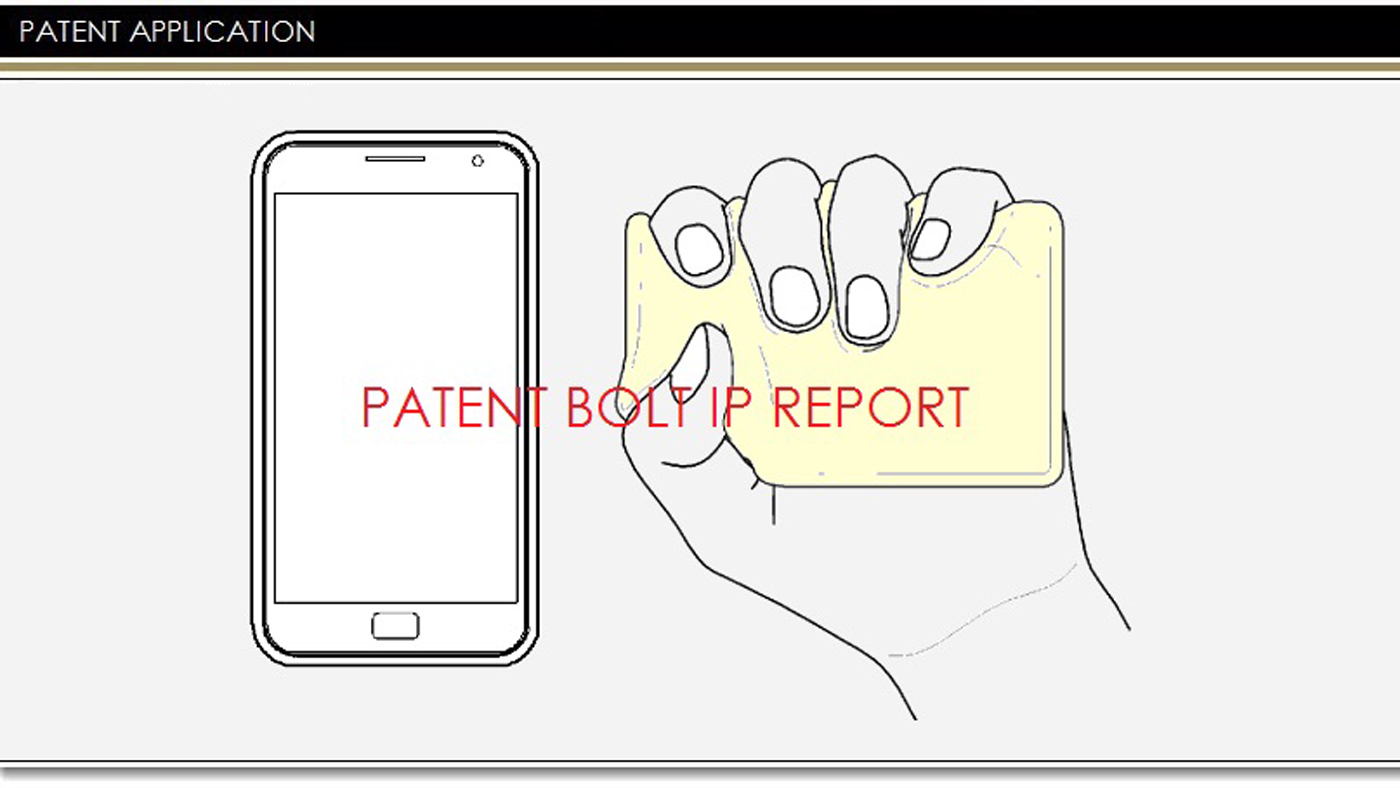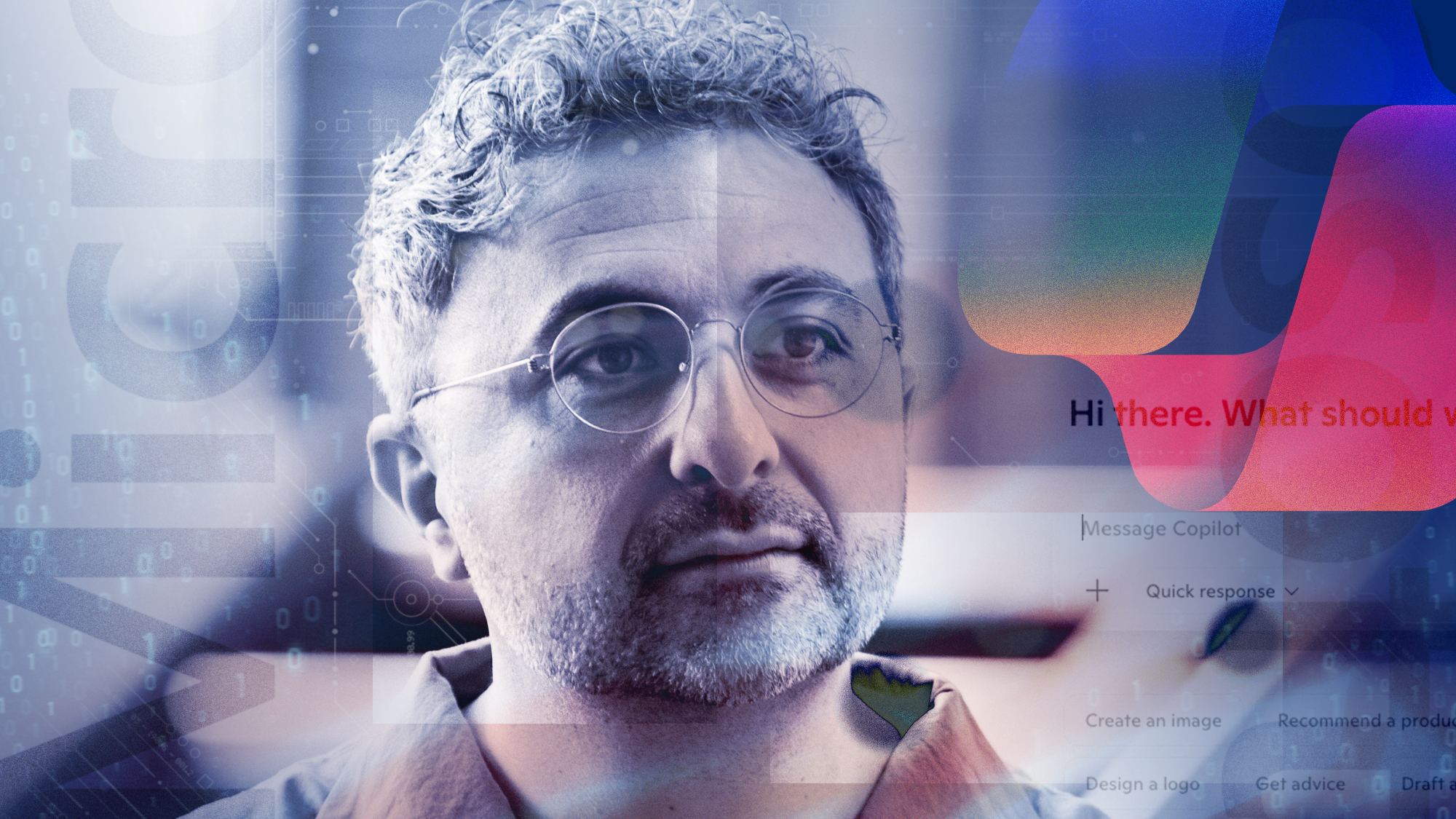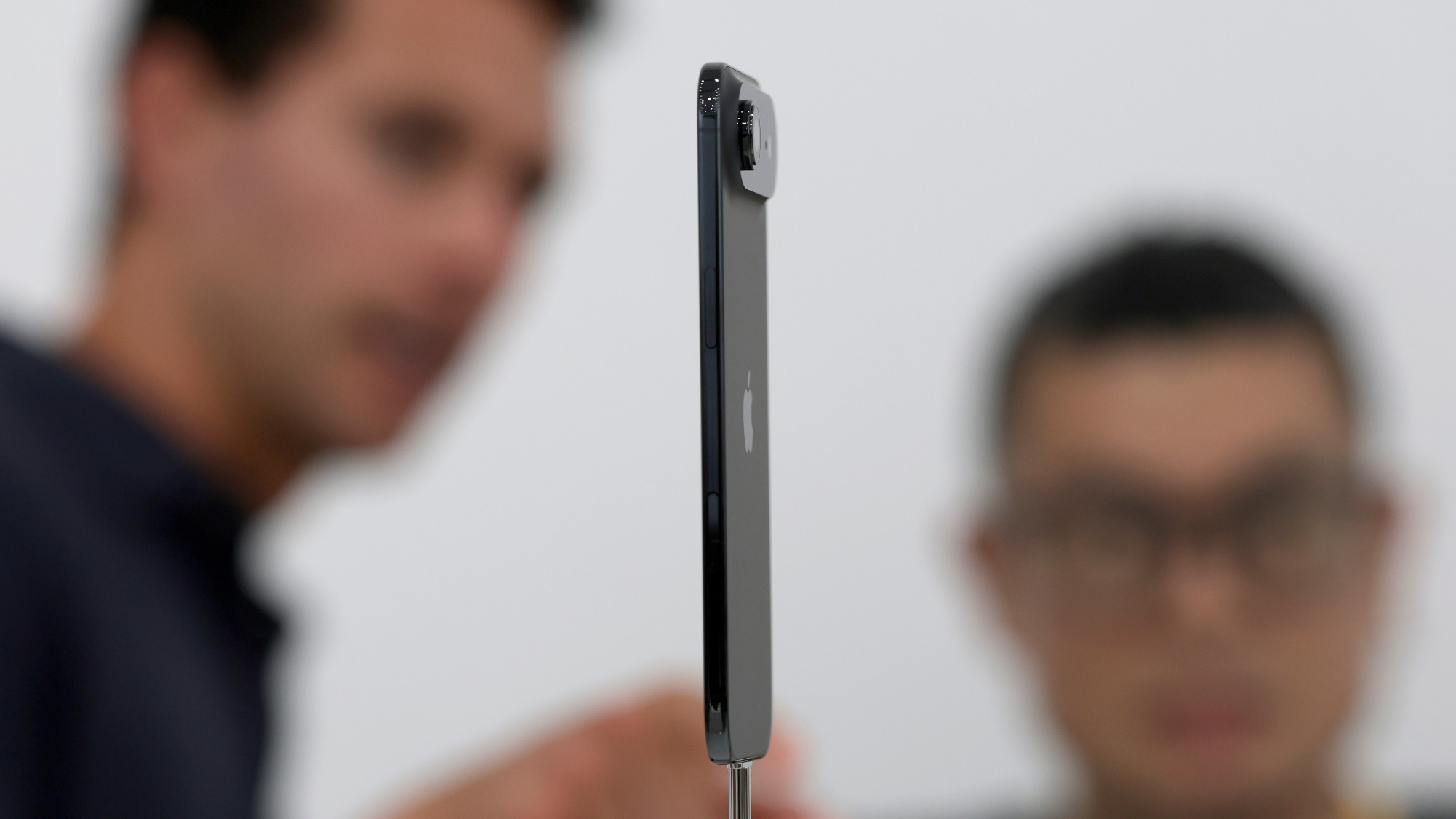From vein recognition to eye implants - the future of mobile phones
Patents reveal what we have to look forward to, including ultraviolet disinfectant and squeezable handsets

A free daily email with the biggest news stories of the day – and the best features from TheWeek.com
You are now subscribed
Your newsletter sign-up was successful
Smartphones could soon boast features such as "vein recognition" or an ultraviolet light that automatically disinfects your fingers, if patents filed by the likes of Samsung, Google and Sony come to fruition.
Trading website musicMagpie reports that manufacturers are examining technology that could let you squeeze your handset or have its features directly beamed on to the surface of your eye.
In 2015, Samsung filed a patent that would allow its devices to recognise users through the unique design of the veins on the back of their hands. This could be the next step in user recognition, following the passcode and the thumbprint.
The Week
Escape your echo chamber. Get the facts behind the news, plus analysis from multiple perspectives.

Sign up for The Week's Free Newsletters
From our morning news briefing to a weekly Good News Newsletter, get the best of The Week delivered directly to your inbox.
From our morning news briefing to a weekly Good News Newsletter, get the best of The Week delivered directly to your inbox.
The company is also playing with the stress balls that have been a feature on executive desks for several years, offering a squeezable toy on which frazzled worker can release their tensions. Combining this principle with phone hardware, Samsung five years ago began to explore the option of allowing users to squeeze or stretch a phone to trigger different functions.
Meanwhile, although hygiene is not commonly mentioned in all the moans and groans about phones, Microsoft is concerned that the sets end up covered in bacteria and that few of us pay much attention to regularly cleaning them.
A 2011 patent from the company introduces the idea of an automatic smartphone disinfectant. However, unlike conventional disinfectants, it is not a liquid or gel; instead, an ultraviolet light bounces between a film and the touchscreen, disinfecting fingertips in the process.
Google has also explored some fascinating new options, including a patent filed in 2012 featuring tech that could allow the front-facing camera to recognise the user, letting them unlock their device with a wink or a smile.
A free daily email with the biggest news stories of the day – and the best features from TheWeek.com
If all that sounds a bit like a futuristic film, then you haven't seen anything yet. The internet giant wants to develop a lens to sit on the surface of a user's iris, bringing smartphone menus directly on to their eye itself. The "eye phone" punchlines almost write themselves.
-
 Will increasing tensions with Iran boil over into war?
Will increasing tensions with Iran boil over into war?Today’s Big Question President Donald Trump has recently been threatening the country
-
 Corruption: The spy sheikh and the president
Corruption: The spy sheikh and the presidentFeature Trump is at the center of another scandal
-
 Putin’s shadow war
Putin’s shadow warFeature The Kremlin is waging a campaign of sabotage and subversion against Ukraine’s allies in the West
-
 Will AI kill the smartphone?
Will AI kill the smartphone?In The Spotlight OpenAI and Meta want to unseat the ‘Lennon and McCartney’ of the gadget era
-
 Why 2025 was a pivotal year for AI
Why 2025 was a pivotal year for AITalking Point The ‘hype’ and ‘hopes’ around artificial intelligence are ‘like nothing the world has seen before’
-
 Has Google burst the Nvidia bubble?
Has Google burst the Nvidia bubble?Today’s Big Question The world’s most valuable company faces a challenge from Google, as companies eye up ‘more specialised’ and ‘less power-hungry’ alternatives
-
 Is Apple’s Tim Cook about to retire?
Is Apple’s Tim Cook about to retire?Today's Big Question A departure could come early next year
-
 Microsoft pursues digital intelligence ‘aligned to human values’ in shift from OpenAI
Microsoft pursues digital intelligence ‘aligned to human values’ in shift from OpenAIUNDER THE RADAR The iconic tech giant is jumping into the AI game with a bold new initiative designed to place people first in the search for digital intelligence
-
 How the online world relies on AWS cloud servers
How the online world relies on AWS cloud serversThe Explainer Chaos caused by Monday’s online outage shows that ‘when AWS sneezes, half the internet catches the flu’
-
 iPhone Air: Thinness comes at a high price
iPhone Air: Thinness comes at a high priceFeature Apple’s new iPhone is its thinnest yet but is it worth the higher price and weaker battery life?
-
 Is the UK government getting too close to Big Tech?
Is the UK government getting too close to Big Tech?Today’s Big Question US-UK tech pact, supported by Nvidia and OpenAI, is part of Silicon Valley drive to ‘lock in’ American AI with US allies